The Metal Gear Solid franchise, created by Hideo Kojima, is not just a series of video games; it is a cultural phenomenon that has influenced gaming, storytelling, and even broader pop culture since its inception in the late 1980s. Clearly, a personal favourite of mine. The franchise is renowned for its complex narratives, innovative gameplay mechanics, and philosophical themes, which have left a lasting imprint on both the gaming industry and its worldwide fanbase. Today, I will explore the cultural impact of the Metal Gear Solid franchise, providing a comprehensive overview of each game in the series, their commercial success, and their influence on other media and games.
Overview of the Mainline Metal Gear Solid Series
Whilst there have been various re-releases and ports as well as side-story games, below I will refer to the mainline games on the original systems they were designed for.
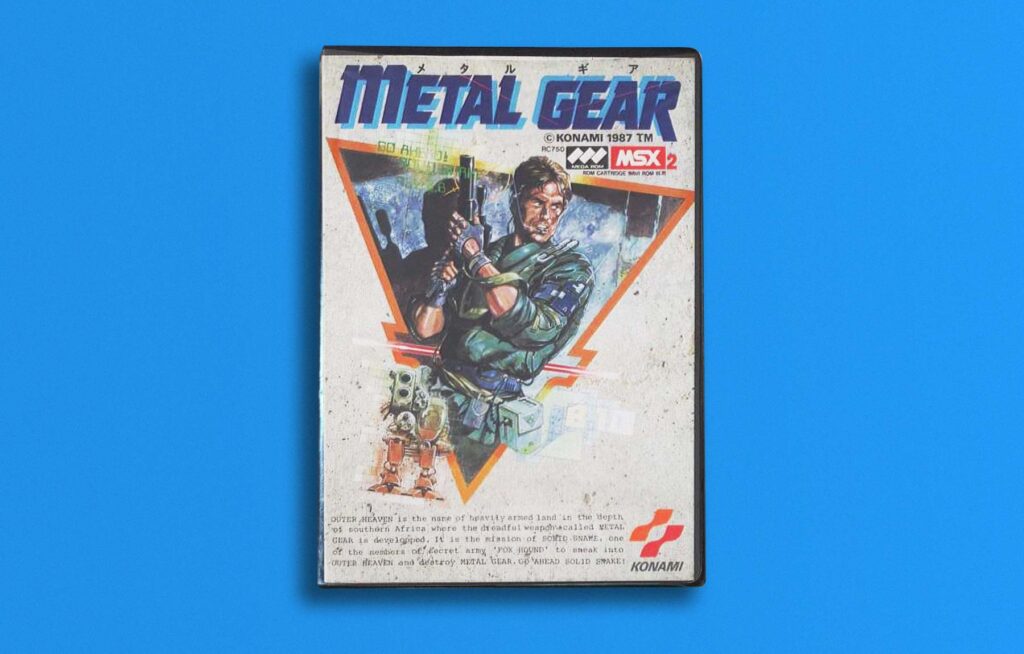
Metal Gear (1987)
Platform: MSX2
Commercial Success: Moderate success, later ported to various platforms.
The original Metal Gear introduced players to Solid Snake, a special forces operative tasked with infiltrating a fortified enemy base to destroy a superweapon known as Metal Gear. The game was groundbreaking for its time, offering stealth gameplay rather than the run-and-gun mechanics prevalent in many games of the era. The title laid the foundation for what would become the series’ hallmark: stealth tactics and intricate storytelling.
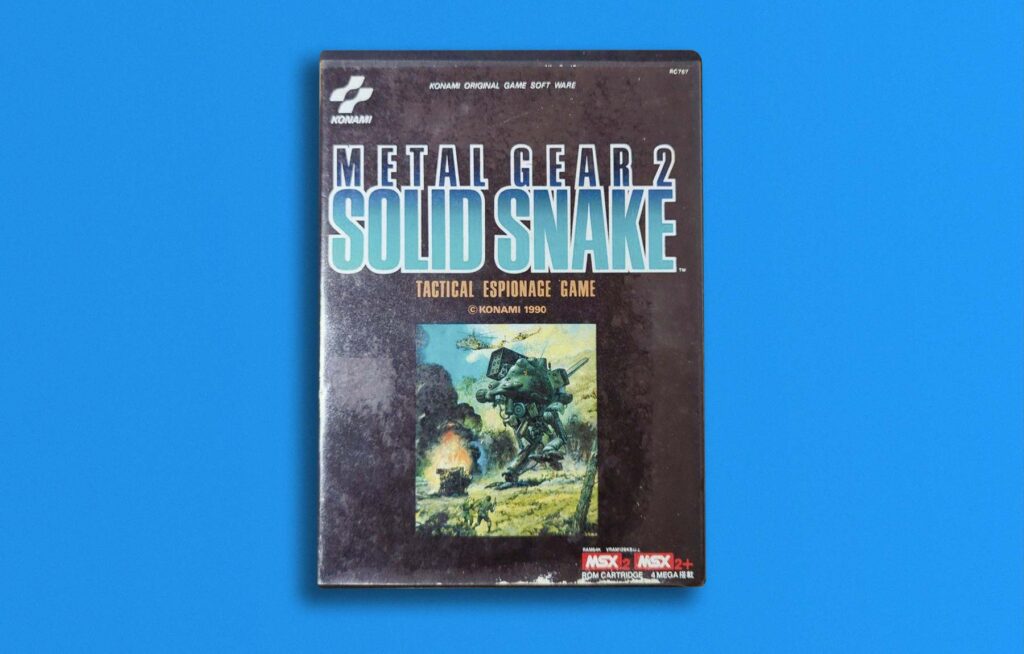
Metal Gear 2: Solid Snake (1990)
Platform: MSX2
Commercial Success: Limited release, cult following.
Building on its predecessor, Metal Gear 2 introduced advanced AI and allowed players to interact with NPCs, further enhancing the stealth mechanics. The game expanded on the narrative, introducing themes of nuclear proliferation and environmentalism. It introduced characters like Raiden and revolved around a more intricate plot, solidifying the series’ reputation for storytelling.

Metal Gear Solid (1998)
Platform: PlayStation
Commercial Success: Over 7 million copies sold.
Metal Gear Solid marked the franchise’s debut on 3D consoles and brought cinematic storytelling to gaming. With voice acting, cutscenes, and a fully realised 3D environment, it became a critical and commercial success. The game’s narrative explored themes of genetic engineering, warfare, and the nature of heroism, redefining what video games could achieve as a storytelling medium. It won numerous awards and is often cited as one of the greatest games of all time.
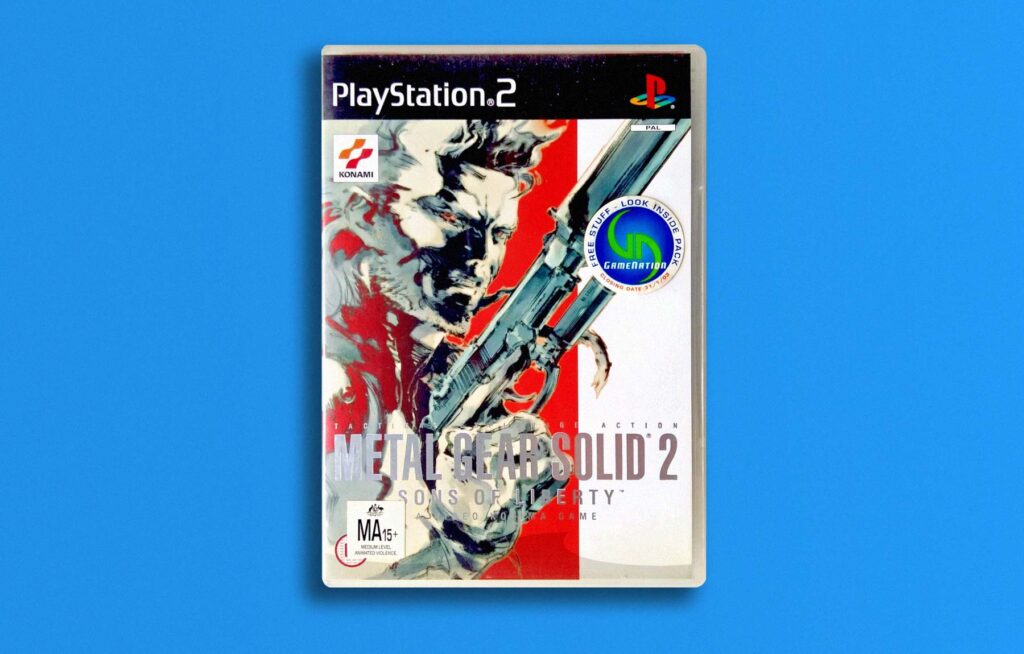
Metal Gear Solid 2: Sons of Liberty (2001)
Platform: PlayStation 2
Commercial Success: Over 7 million copies sold.
Upon its release, Metal Gear Solid 2 was met with anticipation and controversy, particularly regarding its narrative twists and the introduction of Raiden as a playable character. The game tackled themes of information control and the nature of choice, pushing boundaries in narrative complexity. Its revolutionary gameplay mechanics and graphics set new standards for the industry and earned it a place in gaming history.

Metal Gear Solid 3: Snake Eater (2004)
Platform: PlayStation 2
Commercial Success: Over 4 million copies sold.
Set during the Cold War, Metal Gear Solid 3 is a prequel that follows Naked Snake (later known as Big Boss) as he undertakes a mission to rescue a scientist and assassinate his former mentor. The game introduced survival elements, camouflage mechanics, and a more profound exploration of loyalty, betrayal, and the consequences of war. Its critical success further solidified Kojima’s reputation as a master storyteller.
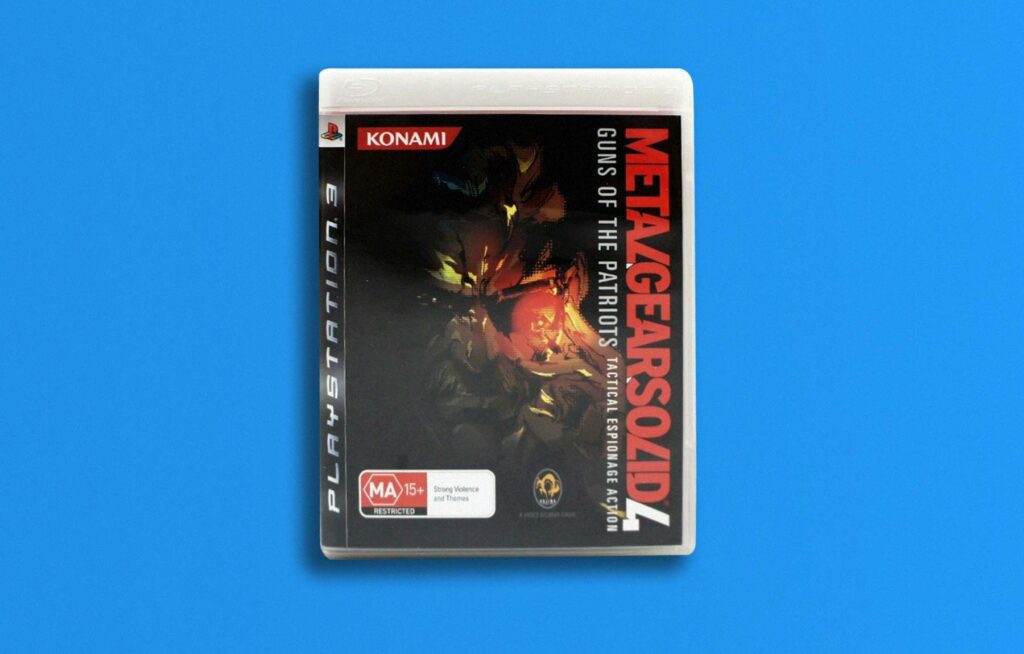
Metal Gear Solid 4: Guns of the Patriots (2008)
Platform: PlayStation 3
Commercial Success: Over 6 million copies sold.
Metal Gear Solid 4 concluded the saga of Solid Snake and introduced a more mature narrative, addressing the themes of aging and the effects of war. The game featured stunning graphics and gameplay innovations, such as the use of the PS3’s capabilities for cutscenes and environments. Its cinematic quality and emotional depth garnered widespread acclaim, culminating in numerous awards.
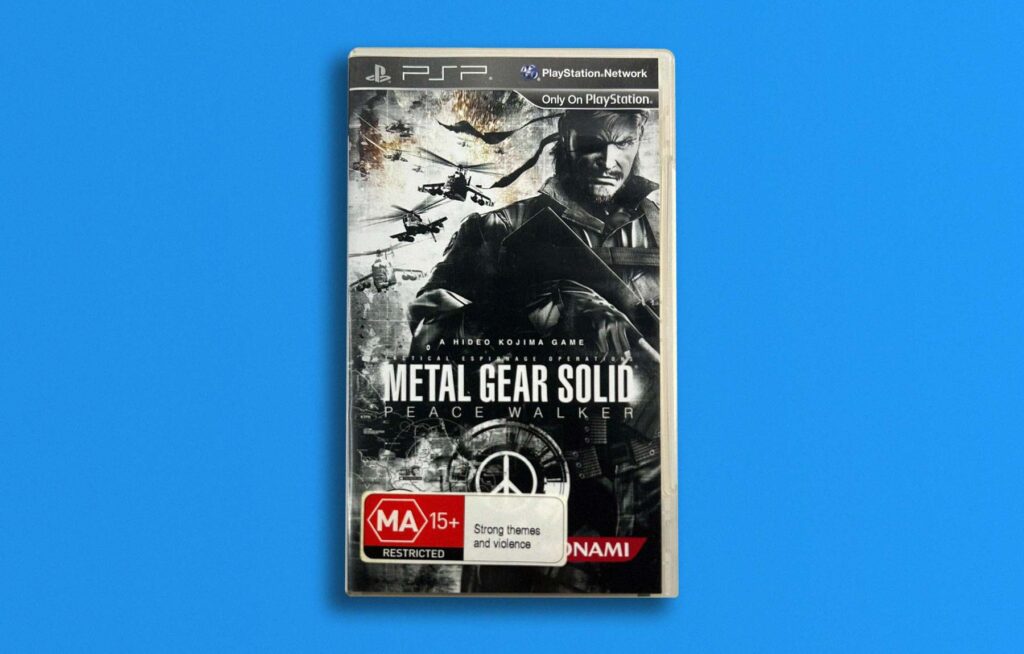
Metal Gear Solid: Peace Walker (2010)
Platform: PlayStation Portable
Commercial Success: Over 2 million copies sold.
Peace Walker is set in the 1970s and follows Big Boss as he builds a private army. The game introduced cooperative multiplayer elements and expanded the series’ lore significantly. It tackled themes of military intervention and personal responsibility while exploring the motivations behind Big Boss’s transformation into a villain.

Metal Gear Solid V: Ground Zeroes (2014)
Platform: PlayStation 3, PlayStation 4, Xbox 360, Xbox One
Commercial Success: Over 1 million copies sold.
Serving as a prologue to The Phantom Pain, Ground Zeroes introduced players to an open-world environment while retaining the series’ signature stealth mechanics. The game received mixed reviews but was praised for its graphics and gameplay. It highlighted the ethical complexities of war and the consequences of military actions.

Metal Gear Solid V: The Phantom Pain (2015)
Platform: PlayStation 3, PlayStation 4, Xbox 360, Xbox One, PC
Commercial Success: Over 6 million copies sold.
The Phantom Pain served as the grand conclusion to the Metal Gear saga, expanding on the open-world mechanics introduced in Ground Zeroes. Set in 1984, players control Big Boss as he seeks revenge on those who destroyed his forces. The game’s open-world design allows for multiple approaches to missions, encouraging player creativity and choice.
The narrative delves into themes of revenge, the cycle of violence, and the global implications of war, all while showcasing Kojima’s signature blend of philosophical storytelling and innovative gameplay. The game received numerous accolades and is often regarded as a crowning achievement in the franchise, although it was also noted for its controversial ending and unfinished content due to Kojima’s departure from Konami.
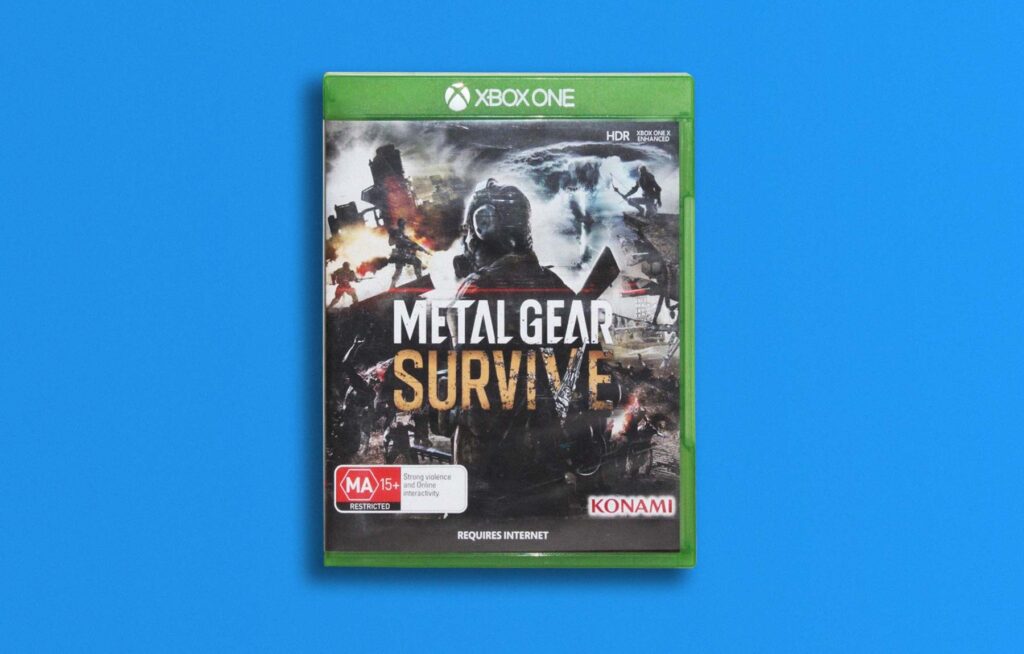
Metal Gear Survive (2018)
Platform: PlayStation 4, Xbox One, PC
Commercial Success: Poor reception; sold 1 million copies.
Metal Gear Survive marked a departure from the core themes and characters of the franchise, focusing on survival gameplay in a zombie-infested world. While it retained some gameplay elements from previous titles, it failed to resonate with fans, largely due to its shift in tone and style. The game received negative reviews, and its commercial performance reflected a significant downturn in interest in the franchise.
Cultural Impact of the Franchise
The Metal Gear Solid franchise has left an indelible mark on gaming culture and beyond. Here are some of the most significant aspects of its cultural impact:
Pioneering Stealth Gameplay
Before Metal Gear, stealth mechanics were largely underutilised. The series redefined how players approached gameplay, emphasising strategy and patience over brute force. This shift influenced countless titles in the action-adventure and stealth genres, including games like Assassin’s Creed, Hitman, and Dishonored. The introduction of mechanics such as hiding in shadows, using distractions, and employing gadgets set a standard for stealth elements in video games.
Cinematic Storytelling
The franchise is renowned for its cinematic approach to storytelling, using elaborate cutscenes, voice acting, and complex narratives to engage players. This narrative depth has inspired game developers to prioritise storytelling in their own titles. Games like The Last of Us and God of War have drawn inspiration from Kojima’s storytelling techniques, blending gameplay with narrative in innovative ways that resonate with audiences.
Philosophical Themes
Metal Gear Solid delves into philosophical discussions about war, identity, and the morality of technology. Themes such as the implications of nuclear proliferation, the ethics of artificial intelligence, and the psychological impacts of war are prevalent throughout the series. The franchise challenges players to think critically about these issues, elevating video games to a medium capable of exploring complex social and moral questions, akin to literature and film.
Influence on Game Design
Kojima’s innovative design choices, such as breaking the fourth wall and incorporating metafictional elements, have influenced numerous games. For instance, the use of in-game codec conversations to deliver exposition and character development has been emulated in various titles. The series also popularised the idea of hidden Easter eggs and alternate endings, which have since become standard in many games.
Fandom and Community
The Metal Gear Solid series has cultivated a passionate and dedicated fan base. Fans engage in discussions about the series’ intricate lore, character motivations, and thematic elements. The community often produces fan art, theories, and even cosplay, reflecting the franchise’s deep cultural resonance. The series has inspired conventions, fan events, and online forums where players share their experiences and interpretations of the games.
Crossovers and Collaborations
The impact of Metal Gear Solid extends beyond its own franchise, influencing other games and media. A notable example is the inclusion of Solid Snake in the Super Smash Bros. series. His appearance not only signifies the character’s popularity but also showcases the recognition of Metal Gear Solid as a significant contributor to gaming culture. Additionally, characters and themes from the series have appeared in various forms of media, including comic books and merchandise, further solidifying its cultural relevance.
Inspiration for Other Games
The influence of Metal Gear Solid can be seen in a variety of games that have drawn inspiration from its mechanics and storytelling. Titles such as Watch Dogs, Deus Ex, and Splinter Cell incorporate stealth and tactical gameplay, reflecting the innovations introduced by Kojima. The franchise’s focus on military and espionage themes has also encouraged other developers to explore similar narratives, creating a genre that thrives on intrigue and strategy.
Legacy and Continued Relevance
Despite the mixed reception of Metal Gear Survive, the franchise’s legacy remains strong and influential. The themes and innovations introduced by Hideo Kojima continue to resonate within the gaming community. The enduring popularity of the series can be attributed to the following factors:
Nostalgia and Character Recognition
Characters like Solid Snake, Big Boss, and others have become iconic figures in gaming. Their design, stories, and development have left a lasting impression on players, generating nostalgia that keeps fans engaged. The character-driven narratives and emotional arcs resonate deeply with audiences, leading to continued interest in their stories. Solid Snake’s inclusion in popular culture, such as memes and references in other media, further underscores his status as a beloved character.
Remakes and Remasters
As gaming technology has advanced, the demand for remakes and remasters of classic titles has risen. The success of the Metal Gear Solid HD Collection and the announcement of potential remakes, such as Metal Gear Solid 3: Snake Eater, reflect the franchise’s lasting popularity. These remakes not only introduce the series to new audiences but also allow long-time fans to revisit and experience the games with updated graphics and mechanics.
Kojima Productions and New Projects
After parting ways with Konami, Hideo Kojima established Kojima Productions and released Death Stranding in 2019. This game, while different in gameplay and narrative style, carries forward Kojima’s unique storytelling approach, blending themes of isolation, connection, and the human experience. The success of Death Stranding reaffirms Kojima’s influence in the industry and keeps the conversation about the Metal Gear Solid series alive, as many fans eagerly anticipate his future projects.
The Broader Cultural Impact
Influence on Film and Media
The cinematic qualities of Metal Gear Solid have led to comparisons with films, particularly in the action and espionage genres. Kojima’s narrative techniques, such as intricate plot twists and character development, have influenced filmmakers and screenwriters seeking to tell complex stories. The series has inspired discussions about the interplay between video games and cinema, with many scholars and critics examining how games can convey narrative in ways similar to film.
Academic Studies
As video games have gained recognition as a legitimate form of art, academic interest in the Metal Gear Solid series has grown. Scholars have analysed its themes, characters, and narrative structures, exploring its commentary on war, identity, and technology. This academic scrutiny validates gaming as a medium worthy of serious study, paralleling literature and film analysis.
Social Commentary
Metal Gear Solid often serves as a critique of contemporary issues, such as the military-industrial complex, surveillance, and the ethics of technological advancement. This social commentary resonates with players and encourages them to reflect on real-world issues. The franchise has sparked discussions about the implications of warfare and the moral quandaries faced by individuals in positions of power, making it relevant in today’s sociopolitical climate.
Merchandise and Spin-offs
The cultural impact of the series extends to merchandise, including action figures, clothing, and collectibles. The popularity of these items highlights the franchise’s influence on popular culture and its ability to transcend gaming. Spin-off media, such as novels and comic adaptations, further enrich the lore and allow fans to engage with the universe beyond the games themselves.
Games Inspired by Metal Gear Solid
The legacy of Metal Gear Solid can be seen in various games that have drawn inspiration from its mechanics, narrative style, and themes. Here are some notable examples:
Assassin’s Creed Series
The Assassin’s Creed franchise has borrowed elements from Metal Gear Solid, particularly in its focus on stealth gameplay and historical narratives. The series features open-world environments and encourages players to approach missions with strategic thinking, much like the stealth mechanics of the Metal Gear games.
Splinter Cell Series
Ubisoft’s Splinter Cell series is often compared to Metal Gear Solid due to its emphasis on stealth and tactical gameplay. The protagonist, Sam Fisher, embodies many of the traits associated with Solid Snake, and the series explores similar themes of espionage and moral ambiguity.
Deus Ex Series
The Deus Ex franchise combines role-playing elements with stealth mechanics and a narrative rich in political and ethical dilemmas. The games explore themes of transhumanism and the consequences of technological advancement, echoing the philosophical inquiries found in the Metal Gear Solid series.
The Last of Us Series
While not a direct comparison, The Last of Us shares thematic elements with Metal Gear Solid, particularly in its exploration of survival, moral complexity, and character development. The narrative-driven experience and emotional depth resonate with the storytelling approach of Kojima.
Ghost Recon Series
The Ghost Recon series incorporates tactical gameplay and military strategy, reminiscent of Metal Gear Solid. With a focus on team-based tactics and strategic infiltration, Ghost Recon has adopted many gameplay mechanics akin to those found in Kojima’s work. The emphasis on realistic military operations and the moral implications of warfare parallels the narrative depth seen in the Metal Gear series.
Watch Dogs Series
The Watch Dogs franchise explores themes of surveillance, hacking, and the consequences of technology on society. The series incorporates stealth elements and encourages players to approach missions with a strategic mindset. Its narrative, which often critiques corporate and governmental control, resonates with the social commentary prevalent in Metal Gear Solid.
Far Cry Series
While more action-oriented, the Far Cry series shares thematic similarities with Metal Gear Solid, particularly in its exploration of conflict and moral ambiguity. The open-world design allows for creative solutions to missions, reflecting the player-driven approaches encouraged in the Metal Gear games.
Conclusion
The Metal Gear Solid franchise has made an unparalleled impact on video gaming, storytelling, and popular culture since its inception. From its pioneering stealth mechanics to its intricate narratives exploring complex philosophical themes, the series has influenced countless developers and shaped the gaming landscape.
Hideo Kojima’s masterful storytelling has established Metal Gear Solid as a benchmark for narrative depth in games. Its characters have become iconic, and its themes remain relevant in contemporary discussions about war, technology, and morality. The franchise’s legacy is not just in its commercial success but also in its cultural significance, inspiring a generation of gamers and developers alike.
As the gaming industry continues to evolve, the influence of Metal Gear Solid will likely remain evident. Its ability to push boundaries and provoke thought ensures that it will be remembered as one of the most important franchises in the history of video games. The ongoing discussions about the potential for remakes and Kojima’s future projects keep the spirit of Metal Gear Solid alive, promising that its cultural impact will endure for years to come.
In conclusion, the Metal Gear Solid franchise is a testament to the power of video games as a medium for storytelling and social commentary. Its rich narratives, innovative gameplay mechanics, and complex characters have left an indelible mark on gaming culture, solidifying its place in the pantheon of great video game franchises. As new generations of gamers discover its legacy, Metal Gear Solid will continue to resonate, inspire, and provoke thought, ensuring its status as a cultural touchstone for years to come.





